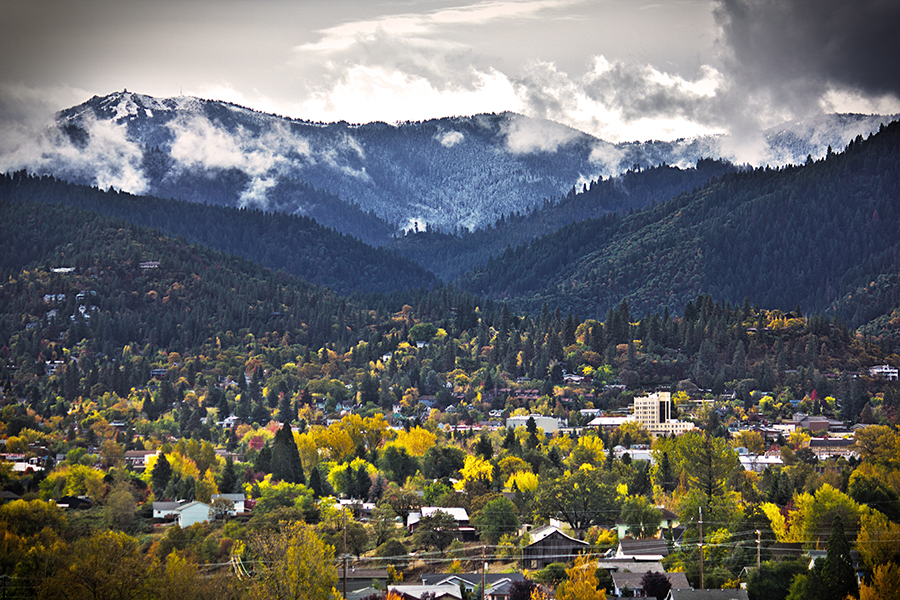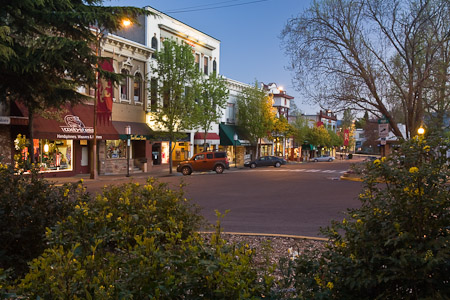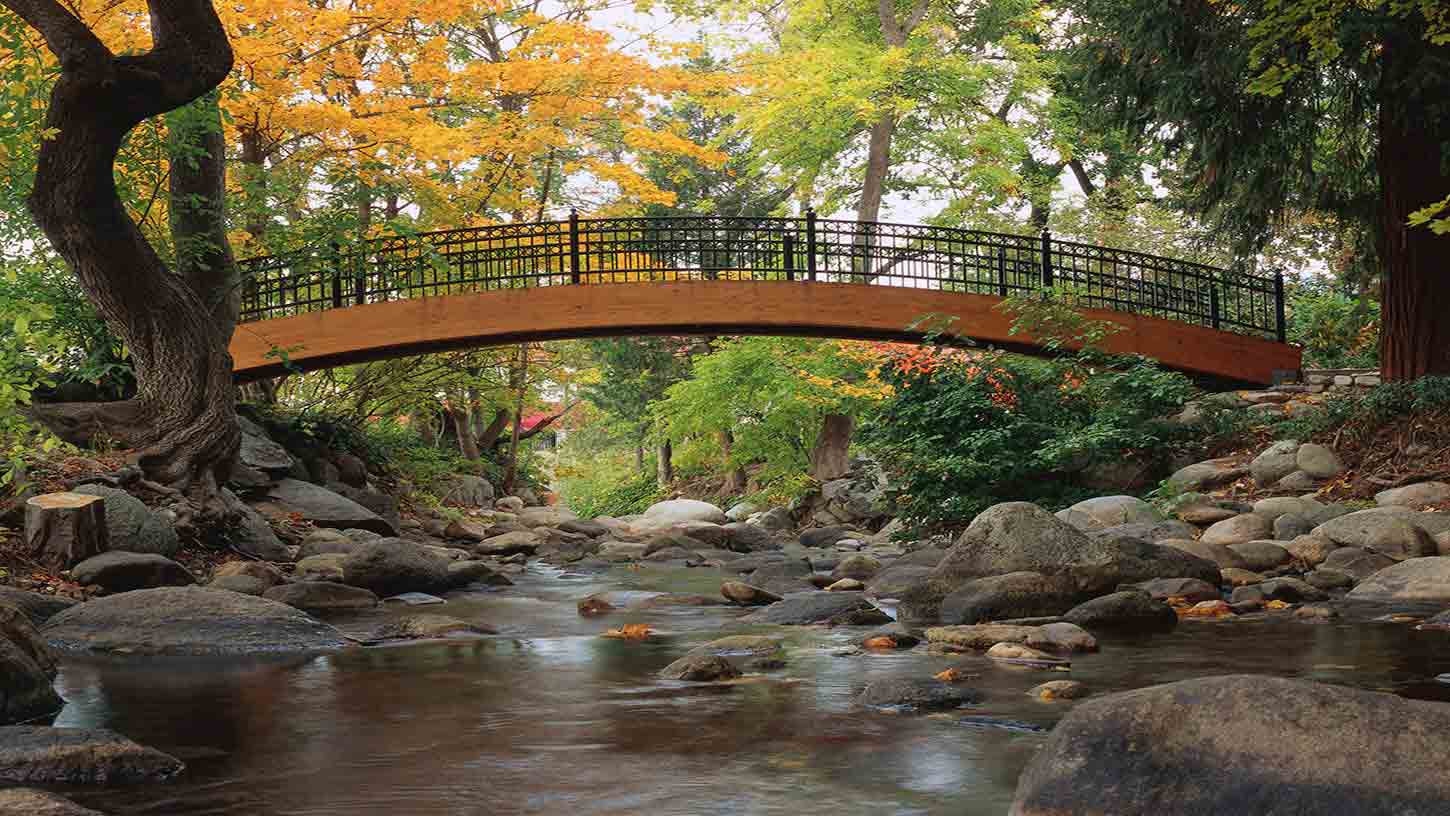Ashland Oregon appears to be everything that its sister city, Chico California used to be but no longer is—a small, distinctive, tight-knit community of people united in their love of a large, semi-wild park running through and beyond town. What I found during a 24-hour visit however, was the bubble of Ashlandia.
 I had been invited to attend the yearly fundraiser, a large and well-organized shindig downtown for a leading environmental organization in Ashland. It afforded a captivating glimpse into the most active and influential people in town.
I had been invited to attend the yearly fundraiser, a large and well-organized shindig downtown for a leading environmental organization in Ashland. It afforded a captivating glimpse into the most active and influential people in town.
Though there was a certain distinctive character to most of the attendees, which the woman next to me colorfully described as “Ashlandian,” the event was well represented by a wide swath of the community, including the president of the local college, Southern Oregon University.
The fundraiser that evening, from the music to the auction for outdoor adventures and the ‘donation push’ after the dinner, conveyed an impression of sophisticated and rather self-satisfied progressivism.
I share some of the critiques and agree with some of the strategies of the movers and shakers. I sat at the table of a few of them, and listened as one gave a vivid description of a recent environmental lobbying trip to DC.
There are other things however, like the acceptance of the conspiracy theory that the American government orchestrated or intentionally allowed the 9.11 attacks, which rub me the wrong way. They confuse the physical and refuse to see the metaphysical.
Despite the affinities, I became uneasy in Ashland’s bubble. It was like taking a balloon ride that is initially exhilarating, but becomes nerve-wracking when you realize no one else on board, including the pilot, sees or wants to see the ominous clouds on the horizon.
The next morning I took a walk to explore the vicinity while my host prepared homemade, fresh-baked bread. Afterward, while the break baked, we talked over tea. Any hopes I had for finding like-minded people through this highly active, octogenarian community gatekeeper began to dissipate.
My host and his wife are both in their late 80’s, and are renowned in Ashland for their devotion to the community, and their amazing energy and sharpness of mind. They had hiked from Katmandu to Everest base camp in their 50’s (a two-month backpacking journey), and both remain extraordinarily active and engaged.
The conversation before brunch turned to the horrible events in Oregon two days before my visit. America has become inured to such mass murders, this one by an exceedingly troubled student at Umpqua Community College, who mercilessly and evilly massacred 9 of his classmates. As I had noticed the night before, there was the sense that the event happened almost in another country, not just a few hours’ drive away in the same state.
As part of our discussion of the event, we talked about President Obama’s heartfelt response, the strongest feeling, we both agreed, that we’d seen from him. The tone of the conversation changed dramatically when I said something about wishing the President had shown more feeling and leadership with regard to the Syrian crisis.
“I’m offended that you are trying to engage me in these things,” my host suddenly blurted out. “I have lived the last 30 years paying as little attention  to national and international politics as I can, simply trying to live my own life.” Taken aback, I dryly replied, “Well, you were ahead of your time.”
to national and international politics as I can, simply trying to live my own life.” Taken aback, I dryly replied, “Well, you were ahead of your time.”
When what happens to people on the other side of the world is seen as having ‘no relationship to me,’ then what happens to people on the other end of the state or nation is easily psychologically and emotionally distanced from one’s heart and mind as well. Taking such an attitude, one becomes complicit in the violence and madness of this world.
On the 3-hour-plus drive back to Chico, there was the insight that in a global society, the local must consciously encompass the global, or localism becomes increasingly self-centered and parochial. This was all the more apparent because most all the people I met or heard speak were well traveled globally, and had worked in other cities and countries, yet they acted like some sort of positive and protective force field surrounded Ashland.
Is it a question of balance between local and global? Or is it a question of threshold, in that local efforts are converging and melding into a global shift in consciousness, as many activists believe? Sadly, it seems clear that neither is true, and neither is happening.
If one accepts the premise that we live in a global society, one’s view and one’s heart has to be from the global to the local, not from the local to the global. Then the microcosm can enfold and encompass the macrocosm.
That approach, which I expressed as best I could, was seen as ‘abstract.’ It’s a strange thing, but the closer one gets to the essence of things, the more abstract it seems to many people.
Martin LeFevre

